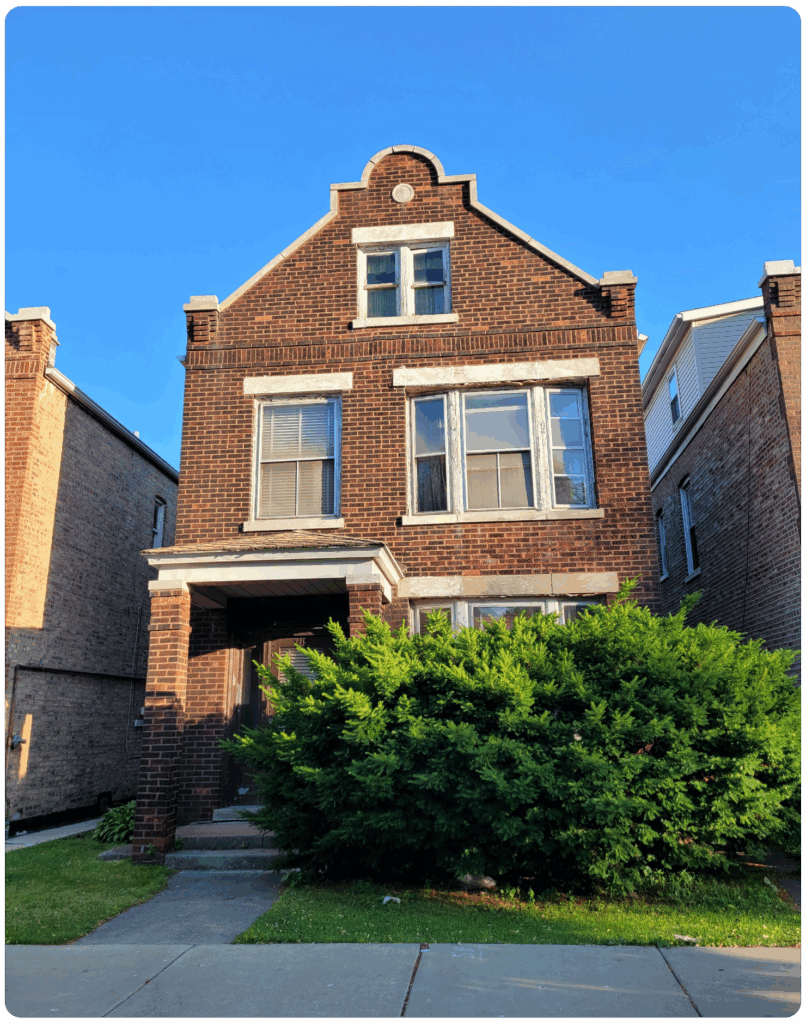
First-time Investors’ Guide to Affordable Closures on Rentals Across Illinois
Understanding closing costs is critical for first-time investors who want to navigate the Illinois real estate market and find affordable rental homes. These charges can include appraisal fees, title insurance, attorney fees, and inspection fees, which can vary significantly across regions of Illinois.
To optimize returns on rental properties, savvy investors must carefully consider these closing fees while budgeting. First-time buyers might find potential savings opportunities by researching local market conditions and working with experienced real estate professionals familiar with Illinois regulations.
Negotiating with sellers to offset closing costs or seeking lender credits can also help to alleviate the financial burden of purchasing rental properties in places such as Chicago or Springfield. Understanding these components enables new investors to make more educated decisions and optimise their investment strategies when they enter the competitive Illinois rental market.
Understanding Closing Costs for Rental Properties in Illinois

Understanding closing costs for rental properties in Illinois is critical for investors and potential landlords navigating the real estate industry. These expenditures include various fees that arise during the completion of a property transaction.
Standard components include appraisal fees, title insurance, attorney fees, and loan origination charges. In Illinois, buyers may additionally face transfer taxes imposed by the state or local municipalities.
Escrow deposits for property taxes and homeowners’ insurance are usually needed at closing. These expenses must be considered when budgeting for an investment property, since they can substantially impact the entire cost of obtaining a rental property.
By being acquainted with these expenses, investors may better organize their money and ensure a smoother transaction process in the competitive Illinois real estate market.
Legal Requirements and Regulations for Illinois Property Closings
Understanding the legal procedures and laws governing property closings is critical for a seamless transaction when purchasing rental property in Illinois. In Illinois, the real estate closing process is governed by state-specific rules that specify numerous transaction details.
Buyers should be aware of the Real Estate Settlement Procedures Act (RESPA), which requires openness in settlement expenses and protects consumers from unexpected fees. Additionally, Illinois law requires that an attorney be present at the closing to evaluate all legal documents and guarantee compliance with state and municipal standards.
This involves verifying title insurance policies, which provide coverage against potential title disputes or liens. Depending on city legislation, municipal inspections may also be necessary to ensure that properties satisfy safety standards before closing.
Understanding these legal subtleties will assist purchasers in managing potential obstacles and ensure a legally acceptable rental property purchase in Illinois.
Breakdown of Typical Closing Fees for Illinois Rental Property Transactions
Understanding the breakdown of typical closing costs is critical for efficient financial planning when buying rental property in Illinois. Closing costs in Illinois often include various fees buyers must pay when a real estate transaction is completed.
Title insurance, appraisal fees, and lender fees are all critical components. Lender fees frequently cover loan origination and processing costs, but appraisal fees are required to determine the property’s market value to acquire financing.
Title insurance is required to protect against legal disputes over property ownership. Buyers should also anticipate paying escrow costs to manage cash during the transaction and recording fees to document the property transfer with local authorities legally.
Transfer taxes may also apply in Illinois, depending on county-specific legislation. Understanding these aspects enables investors to budget accurately and avoid surprises at closing.
Key Factors Influencing Closing Costs on Illinois Rentals
When delving into the complexities of closing costs for rental properties in Illinois, numerous crucial elements emerge that can significantly impact overall expenses. One of the most important considerations is the property’s location, as different counties and towns in Illinois may have varied tax rates and local levies, which affect closing costs.
Furthermore, lender fees play an important role, including loan origination fees and discount points that vary depending on the lending institution’s rules. Title insurance premiums also help cover these costs by safeguarding against title disputes or lawsuits.
Appraisal fees are another critical component because they ensure that the property’s market value matches its selling price, which is essential for purchasers and lenders. Inspection fees increase closing costs by ensuring the property meets the necessary standards and discovering potential problems before concluding the transaction.
Legal fees for writing and evaluating contracts are also necessary to ensure compliance with Illinois real estate rules and regulations. Local governments’ transfer taxes and recording fees for official documentation substantially impact overall closing expenses for rental investments in Illinois.
Understanding these components can help you better manage financial expectations during real estate transactions in the state. For those looking to skip the intricacies and hassle of selling a rental property, A Team Real Estate Solutions offers a simple solution by buying homes and rental properties for cash in Illinois, including Chicago. This makes the process fast, stress-free, and convenient.
Calculate Closing Costs for Your Illinois Investment Property

Several major factors influence the total cost when determining closing costs for your Illinois investment property. Begin by looking at lender fees, which include origination and appraisal costs, as these are common in real estate transactions.
Furthermore, title insurance is essential for preserving your investment by establishing a clear title; the cost is often split between the buyer and seller. Local government transfer taxes, which vary depending on where the property is located in Illinois, should not be overlooked.
Escrow fees must also be considered, as they cover the services of an escrow professional, who controls monies and papers during the transaction. Recording fees must also be included; these are required to register the transfer of ownership with county authorities properly.
Finally, preparing for attorney fees is necessary because legal counsel can assist in navigating Illinois’ complex real estate rules. By thoroughly knowing each component, you may better estimate the closing expenses connected with owning rental property in Illinois, ensuring a financially prudent investment choice.
Buyer’s Guide to Estimating Final Settlement Fees in Illinois
When purchasing a rental property in Illinois, purchasers must understand and estimate closing expenses to make informed financial decisions. Closing costs, including fees payable throughout the last stages of a real estate transaction, can substantially impact an investor’s investment budget.
In Illinois, these expenses often include title insurance, appraisal fees, loan origination fees, attorney fees, recording fees, and taxes like the transfer tax. Buyers should consider prorated property taxes and prepaid expenses like homeowners’ insurance.
Awareness of these potential charges assists purchasers in more properly estimating the total settlement money required at closing. Consulting with an experienced local real estate professional or attorney might help you navigate these charges more efficiently.
Furthermore, examining the Loan Estimate offered by lenders early in the process provides thorough information about expected fees and helps to avoid surprises at the closing table. Buyers should carefully plan their acquisitions and maximize their rental property investments by thoroughly comprehending these Illinois closing fees.
Tips for Reducing Closing Costs on Illinois Rental Properties
Savvy investors can use several strategies to lower closing expenses when buying rental homes in Illinois. One successful technique is to shop around for lenders and title providers, as their prices differ greatly.
Negotiating these fees and asking about possible reductions or promotions would be helpful. Seeking out a lender with competitive interest rates and low origination costs can also result in significant savings.
Buyers should carefully check the Loan Estimate issued by the lender for any needless charges that could be waived or lowered. Some investors seeking to retain cash flow may find it advantageous to choose a no-closing-cost mortgage, in which higher interest rates offset upfront fees.
Furthermore, using excellent bargaining skills during the purchasing process can occasionally result in sellers agreeing to cover a portion of the closing fees as part of the transaction. Engaging a qualified real estate attorney familiar with Illinois legislation can assist in identifying potential savings during contract review and ensure compliance while avoiding costly mistakes.
Understanding which tax-deductible expenses, such as loan origination fees or closing points, may allow property owners to reclaim certain costs through tax deductions.
Common Mistakes to Avoid When Paying Closing Costs in Illinois
Multiple errors can cause additional fees or complications when closing costs on a rental property in Illinois. A standard error is failing to check the closing disclosure form, which contains all charges associated with the transaction.
This oversight may result in losing money and going over budget. Moreover, many investors do not dispute specific fees, such as title insurance or attorney’s fees, which are often charged without reason, leading to unneeded expenses.
Another error is neglecting prorated taxes for property tax and monthly dues for homeowner associations, among others, which significantly increase the cost if not adequately accounted for. In addition, some buyers fail to fully grasp lender-related costs like loan origination and discount points, leading them to pay exorbitantly overpriced loans that are more than needed for the mortgage.
It also remains crucial to avoid last-minute adjustments to financing, as these may push back deadlines and raise costs. Actively planning and keeping these matters in mind while dealing with the closing costs payments in Illinois ensures smoother transactions, free from adding extra financial burdens later through real estate investment deals.
Analyzing Closing Costs in Illinois and Other States for Rental Investments
Analyzing how closing costs in Illinois differ from those in other states is essential for formulating an effective financial plan for rental property investments. In Illinois, the closing costs for rental properties typically encompass title insurance, appraisal fees, attorney fees, and transfer taxes.
Local customs and market conditions often dictate these. For instance, unlike states such as Indiana or Missouri, Illinois tends to have higher transfer taxes, which could impact the overall cost of a rental property.
Moreover, unlike Florida, where attorneys charge lower fees due to fewer legal restrictions on real estate transactions, in Illinois, the entire transaction must be handled by an attorney due to the necessity of strict legal oversight. Understanding interstate differences in closing costs is crucial for any investor looking to expand their portfolio across borders.
Such understanding helps investors develop precise estimates for anticipated returns, compare regions, and appropriately budget specific properties.
The Role of Title Insurance in Illinois Rental Property Closings

Title insurance is crucial in Illinois rental properties because it safeguards the buyer and lender against legal disputes stemming from the title. When buying a rental property in Illinois, ensure that no claims may result in a lien or ownership dispute on the title.
Insurance policies mitigate an investor’s risk by defending against legal actions and paying for any financial damages associated with post-purchase litigation. While a comprehensive title search is conducted during closing to identify active titles, some issues may remain undetected until later.
This is where insurance policies become essential. The coverage ensures it mitigates unexpected defects or legal challenges that threaten ownership. In addition, lenders will require the borrower to pay for the lender’s title insurance on closing costs, which protects the lender’s investment in the loan.
Grasping why title insurance matters allows investors to make informed decisions while navigating transactions within the Illinois real estate market, especially regarding securing rental properties without legal complications.
How Appraisals Impact the Total Closing Cost on an Illinois Rental
Understanding the appraisal process is critical for investors looking to purchase a rental property in Illinois since it directly impacts closing costs. An appraisal estimates the market value of a property, which affects the amount of loan that will be made and the interest rates charged.
Lenders opt for an appraisal to ensure the property’s value justifies the mortgage. This guarantees their investment is protected. The buyer incurs the costs of ordering an appraisal, which considers factors like size and location within Illinois, leading to differences in price.
This cost contributes significantly to the total closing costs. Additionally, gaps between agreed-upon purchase prices and appraised values may require additional negotiations or alterations to the financial structure, including changes to down payments and mortgage agreements.
In different scenarios, buyers could face increased out-of-pocket expenses if they decide to cover more closing costs or negotiate a lower price with the seller due to lower-than-expected appraisals. These concepts enable investors to understand negotiation tactics around real estate purchases while managing rental property acquisition expenses in Illinois.
Navigating Taxes and Their Influence on Closing Costs in Illinois Real Estate
Effective planning around the taxes that incur during the purchase of a rental property in Illinois is crucial, as taxes influence closing costs prominently. Since property tax burdens are paid relative to population density within a given area, they significantly impact real estate closing costs.
Real estate tax estimations for prorated amounts post settlement should be incorporated into outlay calculations because selling parties remain liable for some prorated tax liabilities during the holding period leading up to sale completion. Another critical factor encompasses transfer taxes. Within Illinois, state and municipal transfer taxes may vary from city to city, significantly reducing closing costs.
As complications involving title insurance may arise, possible tax liens must also be addressed because these liens can complicate matters and drive up costs due to increased levels of complication involved. Understanding all taxed factors, including potential encumbrances against the property, is necessary to reach correct conclusions involving expenses related to rental purchases, enabling smooth closings.
Essential Paperwork Needed for Closing a Rental Deal in Illinois
Understanding the prerequisites for dealing with paperwork can help avoid a misstep when settling rental property contracts in Illinois. The first and primary document required is a purchase agreement, which acts as an outline for negotiations because it lists specific terms and conditions governing the merging transactions.
It is important to remember that a title insurance policy also serves a purpose, as it protects against any future claims regarding ownership of the property. Alongside ensuring each agreed-upon cost has been included in closing submission documents, they maintain transparency within the entire transaction, financial or otherwise.
From the buyer’s perspective, confirming the accuracy of verifying the deed receipt remains pivotal. Survey results that indicate no additional encumbrances on the parcel being sold are also crucial. Thorough inspection reports highlight matters that may hinder the smooth selling of rental properties and also benefit the purchase.
Avoid legal intricacies but ensure precision during scrutiny to help finalize deals while navigating the complexities of Illinois real estate transactions.
Working with Real Estate Professionals and Lawyers During an Illinois Property Close
Hiring attorneys or real estate experts to help with rental property purchases due to the Illinois closing fee intricacy is often unavoidable. Above all, real estate brokers are essential sources of information about industry trends. They improve your experience by guiding you through complex property transaction procedures while ensuring all requisite documents are prepared on schedule. In addition, they work to negotiate contract terms that better suit your financial expectations.
Effective real estate lawyers aid clients in business law litigation by defending them against claims using legal document auditing for a client’s contracts, so that unbeneficial legal obligations do not exist, or damages from undeserved provisions will not be suffered post-signing.
In states like Illinois, where local policies control property transactions, engaging an attorney familiar with such unique jurisdictions is particularly helpful in dealing with compliance issues bordering on laws linked to those jurisdictions.
Engagement of these specialists allows investors to appropriately manage closing costs, analyze property investments against their investment plans, and reduce takeover risks of acquiring undesirable rental properties.
Understanding Prorated Expenses at Closing for Rentals in Illinois

Understanding the prorated closing costs of purchasing a rental property in Illinois is crucial because they may significantly influence your total investment. Prorated closing costs are fees divided based on the time duration of asset possession between the parties.
Some of the prorated expenses include taxes owed and income from rentals. In Illinois, it is customary for property taxes to be paid in arrears, meaning buyers incur tax liability from January 1st to the date of purchase.
All HOA payments or assessments due during this period will be proportionally smoothed. For rentals with standing occupants, payment received for rent is typically adjusted so both parties share the burden proportionately based on the number of days possessed.
These prorations enhance your financial efficiency in conjunction with potential rental revenue while closing a property in Illinois.
Residential and Commercial Rental Closings in Illinois
While navigating the myriad closing costs related to real estate rentals in Illinois, a distinction should be made between residential and commercial rental closings. Residential closings are simpler than commercial ones as they follow templates, incurring fewer costs compared to those linked to businesses.
Reportedly, homebuyers in Illinois owe loan origination fees alongside appraisal fees, title insurance, and escrow fees. Moreover, unlike residential rentals, commercial rental closings have heightened deal complexity resulting from more transactions and complex financing structures.
More complicated commercial transactions could incur extra attorney fees associated with thorough due diligence that covers environmental auditing and deeper title examination. Additionally, tailored business zoning compliance inspections or construction for the state of Illinois might be required for some commercial properties.
These are some reasons why larger closing costs accompany commercial purchases compared to residential property purchases. Understanding these nuances can prove invaluable to stakeholders seeking to sharpen investment strategies within Illinois’s rapidly growing real estate market.
How Much Are Closing Costs on a Rental Property?
For an investor focusing on rental properties in Illinois, grasping the intricacies surrounding closing costs is imperative. In Illinois, the average range of closing costs for a rental property is between 2% and 5% of the total amount paid for the property.
Closing costs generally encompass loan origination, appraisal, title insurance, escrow, and associated attorney fees. Buyers must also account for prospective costs like transfer taxes and recording fees.
Integrate these expenses into your overarching investment plan to ensure profitable returns. Investors can maximize profit when acquiring rental properties by conducting thorough research regarding closing costs within Illinois’ aggressive real estate landscape.
Can You Expense Closing Costs on Rental Property?
How to allocate funds for closing expenses is pivotal when seeking investment opportunities in rental property within Illinois. Real estate transactions involve several processes, such as appraisals and title procurement, that warrant considerable resources derived from substantial sums of money spent, such as paying hundreds for inspections and thousands for titles.
As a property owner, you may wonder whether these costs can be written off or claimed as an expense for tax purposes. In most cases, the IRS allows closing costs to be included in the property’s cost basis and avoided as immediate write-offs.
It is essential to understand the allocation between expenses that can be amortized over time versus those that must be capitalized. For example, some loan-related expenses like origination points are classified as variable costs and should be amortized over the life of the loan.
An effective tax strategy helps one optimize taxation efficiency while remaining within the legal bounds of federal taxation rules for investment properties located in Illinois. Reasonable control regarding these expenses improves cash flow and even affects overall returns from rental property investments.
What Are Typical Closing Costs in Illinois?
Knowing estimated closing costs ascertains one’s budget when purchasing a rental property in Illinois. Frequently, closing costs involve a mix of service fees for work performed by both parties within a real estate deal.
Hopkins Title and Escrow Billable Services outlines that legal expenses and appraisal fees, which determine the property’s market value, are also included. Buyers also acquire inspection fees, which ensure the property’s conditions meet expectations. Furthermore, title insurance covers losses incurred from possible defects due to titles.
Moreover, transfer taxes are mandatory in Illinois, meaning both local and state regulators impose them on property ownership changes. Other potential fees include loan origination if financing is requested, recording fees for documenting transactions into public records, and escrow service payments for maintaining funds until all set conditions regarding closures are satisfied.
Recognizing these standard closing costs helps real estate investors budget appropriately when buying rental properties in Illinois’s more populated areas.
How Much Is the Closing Cost on a $300,000 House?
It is crucial to grasp all closing expenses when preparing the finances for a $300,000 rental property purchase in Illinois. Home closing costs are common in Illinois, ranging from 2% to 5% of the sale price.
A house priced at $300,000 translates into approximately $6,000 and $15,000. Other charges incurred during real estate transactions in Illinois include loan origination and appraisal, title insurance, and attorney fees.
There are also ancillary fees from local governmental bodies, such as recording fees and transfer taxes. To ensure that surprises are avoided at closing, investors should request a quote of these estimates from their lender or real estate professional well ahead of time.
Knowledge of these various charges allows for detailed forecasting accuracy concerning how much capital will be required to purchase rental properties in Illinois, enabling adjustment between financial strategies explicitly crafted for the investment’s goals aligned with them.
If you’re a property owner in Illinois, ready to move on from the headaches of managing a rental, A Team Real Estate Solutions is here to help. We buy houses and rental properties for cash in Illinois, allowing you to skip the inspections, repairs, paperwork, and drawn-out closing process. Whether your property has tenants or needs work, A Team Real Estate Solutions makes it easy to sell quickly and walk away with cash in hand—no stress, no surprises. Contact us at (708) 608-0420 today to get your offer!
Helpful Illinois Blog Articles
- How Much Does It Cost to Sell a House in Illinois
- Can I Sell My House at Auction in Illinois
- How To Sell A House In Poor Condition In Illinois
- Guide To Short Selling Your Home To A Relative In Illinois
- Guide To Repairing Fire-Damaged Houses In Illinois
- Can My Ex-Partner Sell Our House Without Consent In Illinois
- Guide To Selling Your Home By Owner In Illinois
- Understanding Appraisal Required Repairs In Illinois Real Estate
- How Long Can You Leave Your Property Unoccupied
- How To Opt Out Of An HOA In Illinois
- Affordable Housing Options In Illinois
- Navigating Home Sales During Forbearance In Illinois
- Handling Delinquent HOA Payments in Illinois
- Can You Sell a Rental With Tenants in Illinois
- Understanding Closing Costs For Rental Property In Illinois
- Guide To Selling A House With Outstanding Property Taxes In Illinois
- How To Successfully Sell A Storm-Damaged House In Illinois
- Understanding Hospital Liens On Your Illinois Home
- Can You Sell a House with Asbestos in Illinois?
- Does a Seller Pay Closing Costs in Illinois?

| STATE OF ILLINOIS | LOAN APPLICATION | TAX PAYMENT | SALES | MORTGAGE LOAN | MORTGAGE INTEREST |
| HOME LOAN | CONVENTIONAL MORTGAGE LOANS | RESIDENTIAL REAL ESTATE | BANKRATE | BANKRATE.COM | TAX DEDUCTIBLE |
| DEDUCTIBLES | TAX BENEFITS | TAX DEDUCTIONS | DEDUCTIBLE EXPENSES | HOMEOWNERSHIP | HOMEBUYERS |
| REALTOR | BROKER | TITLE COMPANY | ESCROW ACCOUNT | HOME APPRAISALS | PROPERTY VALUE |
| REAL ESTATE APPRAISER | MONEY | REFINANCE | REFINANCING | REFI | COOK COUNTY, ILLINOIS |
| INFORMATION | HOMEOWNERS ASSOCIATION (HOA) | HOMEOWNER’S ASSOCIATION | DEPRECIATION | REDFIN | MORTGAGE INSURANCE |
| PMI | PRIVATE MORTGAGE INSURANCE | MORTGAGE INSURANCE PREMIUM | HOME INSPECTORS | HOME INSPECTION | HOME EQUITY |
| EQUITY | CREDIT REPORT | UNDERWRITING | UNDERWRITERS | REBATES | FLAT FEE |
| ATTORNEY’S FEES | VETERANS | VA LOANS | AMERICA | TRADEMARK | REGISTERED TRADEMARKS |
| OPTIONS | CREDIT CHECK | CREDIT SCORE | CREDIT CARD | TRANSFER FEES | |
| PERCENTAGE | MEDIAN | MARKETING | EARNEST MONEY | EARNEST MONEY DEPOSIT | COURIER |
| PAYS CLOSING COSTS | YOUR CLOSING COSTS | CLOSING COSTS ARE | IN ILLINOIS THE | ILLINOIS CLOSING COSTS | IN ILLINOIS CLOSING |
| OWNERSHIP OF THE | PAY CLOSING COSTS | THE DOWN PAYMENT | PRICE OF THE | HOMES PURCHASE PRICE | BUYER CLOSING COSTS |
| OWNERS TITLE INSURANCE | THE SELLER TO | YOUR REAL ESTATE | AVERAGE CLOSING COSTS | ARE CLOSING COSTS IN | A REAL ESTATE AGENT |
| PAYS CLOSING COSTS IN | WHO PAYS CLOSING COSTS | A REAL ESTATE ATTORNEY | IN ILLINOIS THE BUYER | OWNERSHIP OF THE PROPERTY | CLOSING COSTS FOR SELLERS |
| CLOSING COSTS FOR BUYERS | CLOSING COSTS ARE THE | IN ILLINOIS HOW MUCH | THE HOMES PURCHASE PRICE | COSTS IN ILLINOIS HOW | WHAT ARE CLOSING COSTS |
